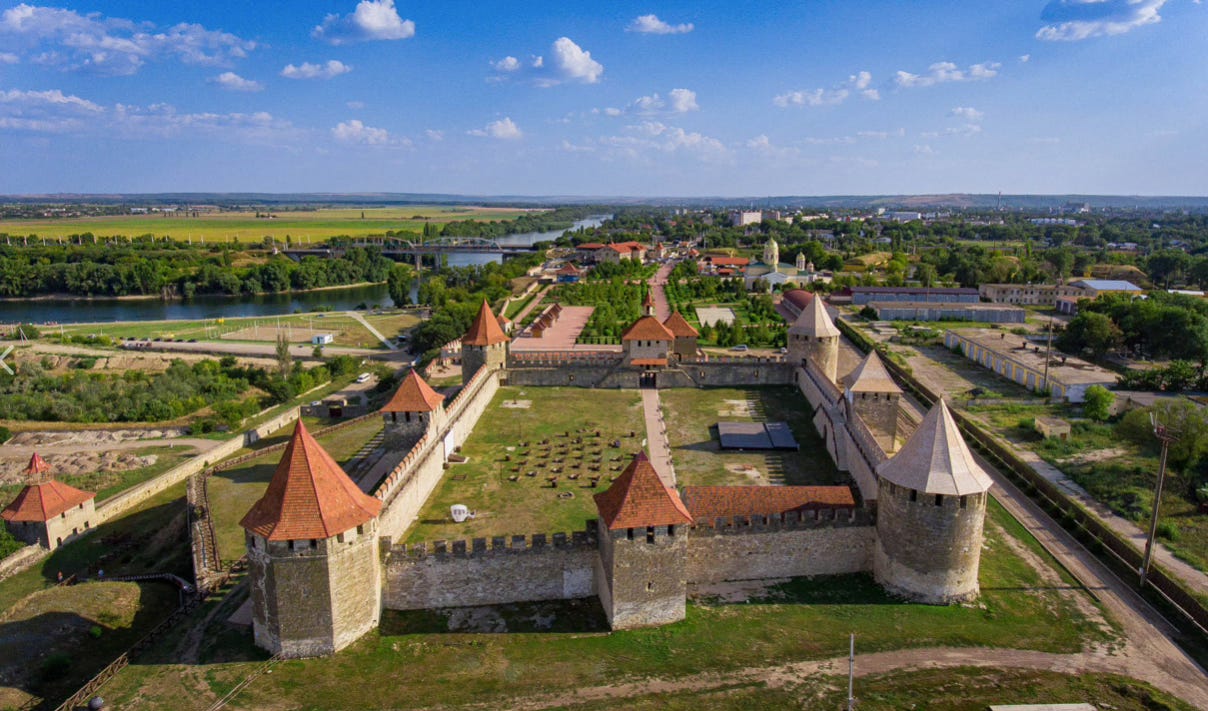Moldova in Kremlin Cross-Hairs
Moscow aims to steal the September 28th elections
Tighina Fortress (shown here) in Bender, Moldova was built in the 12th century, possibly by the Genoese, and strengthened in the 15th century before it fell to Ottoman Sultan Suleiman the Magnificent in 1538. Today’s Moldovans are desperately trying to defend themselves from a new invasion — an online and electoral one led by Moscow’s information warriors.
For the next two weeks Moldova, a country of 2.4 million lying between Ukraine and Romania, will be under intense Russia cyber-assault, as it faces large-scale online interference and active measures seeking to disrupt its parliamentary elections. This is not only a test of Moldova’s European and democratic credentials. It is yet another trial by fire for modern democratic resilience.
Moldova only narrowly avoided disaster in late October 2024, when its pro-European president Maia Sandhu narrowly won re-election and a referendum on joining the EU squeaked through with 50.17 percent of the vote. In the current campaign, Moldova is facing another no-holds-barred Russian onslaught, but will have to rely on its own defences and those of European and other allies, since the Trump Administration has dramatically scaled back US support for defending democracy.
It is crucial to understand how much punch this massive Kremlin propaganda packs. A small army of thousands of individuals – some in Russia, others in Moldova and elsewhere – are engaged full-time in vote-rigging, corruption of officials and online disinformation. They establish fake accounts that coordinate posts for algorithmic advantage using identical scripts, directed campaigns and laundered narratives. Their material dominates Telegram, TikTok, X and other online platforms in Moldova. The themes are predictable – fake scandals about Sandhu and her team, lies about immigration, bogus takes on the EU, NATO and democracy.
No country should have to face such a vast miasma of online distortion. Russian meddling is tilting the playing field and altering results of the September 28th elections as I write. But Kremlin malice has also mobilized pro-democratic forces. Sandhu has received unprecedented support from European leaders. Independent watchdogs from the Institute for the Study of War (ISW) and the Centre for Strategic and International Studies (CSIS) to the Tony Blair Institute for Global Change and the European Policy Centre have all been sounding the alarm.
Will Moldovans see through the fog of this information war? We will soon find out. They have certainly faced plenty of Russian intrusions in the past.
Russia first detached Bessarabia, as this part of Moldova was also known, from the Ottoman empire at the end of the Napoleonic wars. When Wallachia and Moldavia east of the Prut river formed the United Principalities in 1859 – when Russia was weak after the Crimean war – Bessarabia (like much of today’s Poland and Ukraine) remained part of Russia. In 1917 it joined Romania, formed on the basis of the United Principalities in the 1860s. But in 1940 Stalin annexed Bessarabia under a secret annex to the Molotov-Ribbentrop Pact with Hitler. Nazi Germany occupied Moldova from 1941 until 1945 when it was integrated into the Soviet Union along with a Romanian-speaking territory on the left bank of the Dniestr river that had been part of the Ukrainian Soviet Socialist Republic prior to 1940.
Through more than two and half centuries under Russian rule, Moldova had been subject to Russification, repression, deportation, famine and genocide – much like neighbouring Ukraine. Yet Moldova never surrendered its distinctive Romanian-speaking culture. After the first 2014 Russian invasion of Ukraine, many feared Pridnestrovie – as left bank Moldova is still known – would become a fifth column for Russian fascist militarism, but that dog did not bark. Since the large-scale 2022 Russian invasion of Ukraine, the breakaway left-bank enclave has lost access to Odessa port, a secretive business model has collapsed, and the tiny region’s status as a black market hub has taken a big hit, as the FT recently reported.
Moldova’s only viable future path requires European integration. In a fair vote, Moldovans would vote both for Sandhu and rapid EU accession. But what will be the result on September 28th given the industrial-scale disinformation and electoral corruption now being bankrolled by Moscow?
We shall see. In the meantime, raise your voice for Moldova – a country desperate to escape a long history of Russian imperial domination. Let’s hope governments in Canada, Ukraine, the EU and the UK are doing their level best to give Moldova breathing space and ensure Moldovan democracy survives this brutal test.



